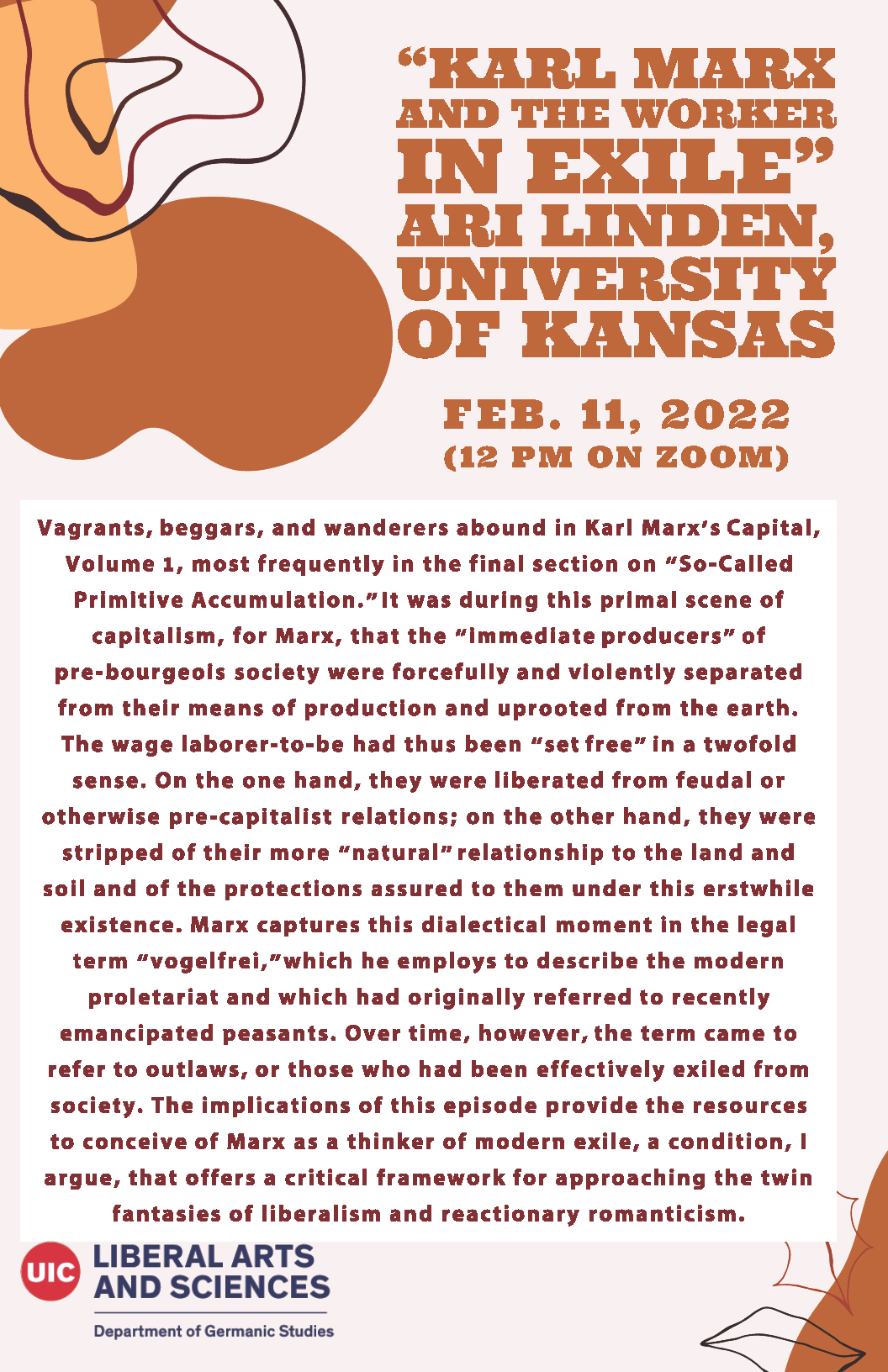Karl Marx and the Worker in Exile
Germanic Studies Colloquium
February 11, 2022
12:00 PM - 1:00 PM

Ari Linden, University of Kansas
Vagrants, beggars, and wanderers abound in Karl Marx’s Capital, Volume 1, most frequently in the final section on “So-Called Primitive Accumulation.” It was during this primal scene of capitalism, for Marx, that the “immediate producers” of pre-bourgeois society were forcefully and violently separated from their means of production and uprooted from the earth. The wage laborer-to-be had thus been “set free” in a twofold sense. On the one hand, they were liberated from feudal or otherwise pre-capitalist relations; on the other hand, they were stripped of their more “natural” relationship to the land and soil and of the protections assured to them under this erstwhile existence. Marx captures this dialectical moment in the legal term “vogelfrei,” which he employs to describe the modern proletariat and which had originally referred to recently emancipated peasants. Over time, however, the term came to refer to outlaws, or those who had been effectively exiled from society. The implications of this episode provide the resources to conceive of Marx as a thinker of modern exile, a condition, I argue, that offers a critical framework for approaching the twin fantasies of liberalism and reactionary romanticism.
Date posted
Jan 7, 2022
Date updated
Jan 28, 2022